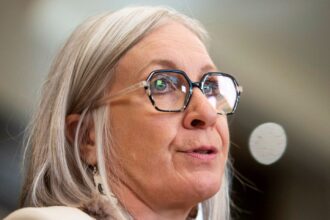In a surprising twist that could reshape waste management policies in the Okanagan, Kelowna city staff have recommended against participating in the Regional District of Central Okanagan’s (RDCO) proposed food waste collection program. The recommendation, which will be presented to council next Monday, highlights significant concerns about cost efficiency and program redundancy.
Kelowna’s existing yard waste collection program has been quietly accepting food waste since 2021, a fact many residents may not realize. This program, which operates on a bi-weekly schedule from March through November, already handles approximately 4,000 tonnes of organic material annually. According to Scott Hoekstra, Kelowna’s landfill and compost operations manager, “Our current system is processing food waste effectively, though we recognize awareness of this service needs improvement.”
The RDCO’s proposed year-round weekly collection would come with a substantial price tag. City staff analysis reveals the regional program would cost Kelowna residents an additional $51 per household annually—roughly doubling current waste collection fees. This increase would fund not only collection services but also the construction of a new composting facility estimated at $25 million.
“We’ve carefully evaluated the financial implications,” notes Hoekstra. “The regional approach would require significant investment in new infrastructure while our current system already accommodates food waste processing.”
Environmental considerations also factored into the recommendation. The city’s existing waste management approach has helped divert approximately 17% of household waste from landfills. Staff believe that with improved education about the current program’s food waste acceptance, this diversion rate could increase substantially without implementing an entirely new system.
The RDCO’s proposal comes amid growing pressure from the provincial government to reduce organic waste in landfills. British Columbia has set aggressive targets for municipalities to divert organic materials, which produce methane—a potent greenhouse gas—when decomposing in landfills.
If council accepts staff recommendations, Kelowna would be the first major municipality in the region to opt out of the collaborative approach. West Kelowna and Lake Country are still evaluating their participation, while Peachland has already expressed interest in joining the regional program.
Financial analysts note this decision reflects broader tensions in municipal governance between regional cooperation and local fiscal responsibility. “Municipalities are increasingly weighing collaborative environmental initiatives against direct costs to taxpayers,” explains Dr. Margaret Chen, an environmental policy expert at UBC Okanagan.
The decision ultimately rests with Kelowna’s elected officials, who must balance environmental goals with economic realities when they vote next week. Their choice could set a precedent for how medium-sized Canadian cities address waste management challenges in an era of climate action and fiscal constraints.
As communities across Canada grapple with similar waste management decisions, the question remains: Will prioritizing short-term cost savings over regional environmental collaboration prove beneficial in the long run, or might Kelowna find itself implementing a more expensive solution later?

























